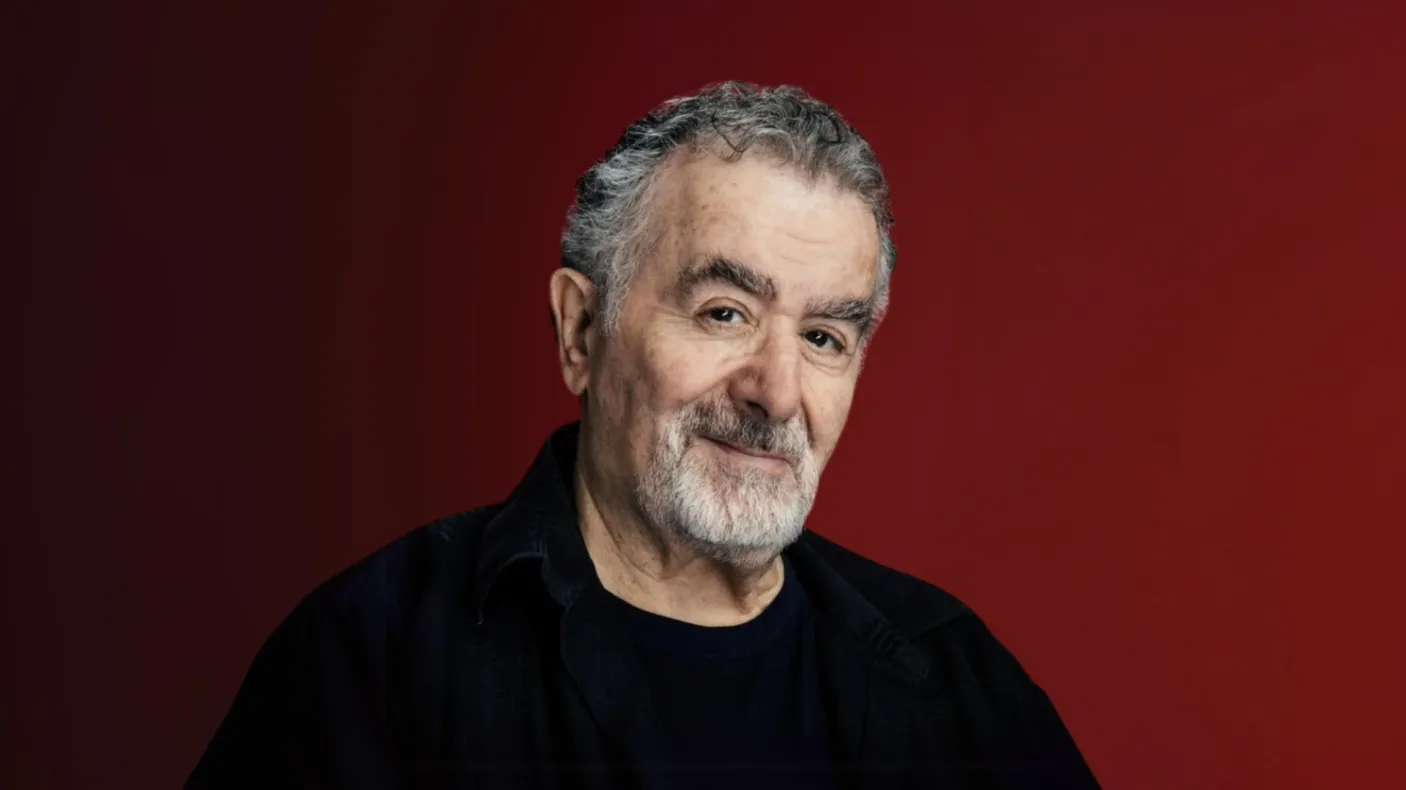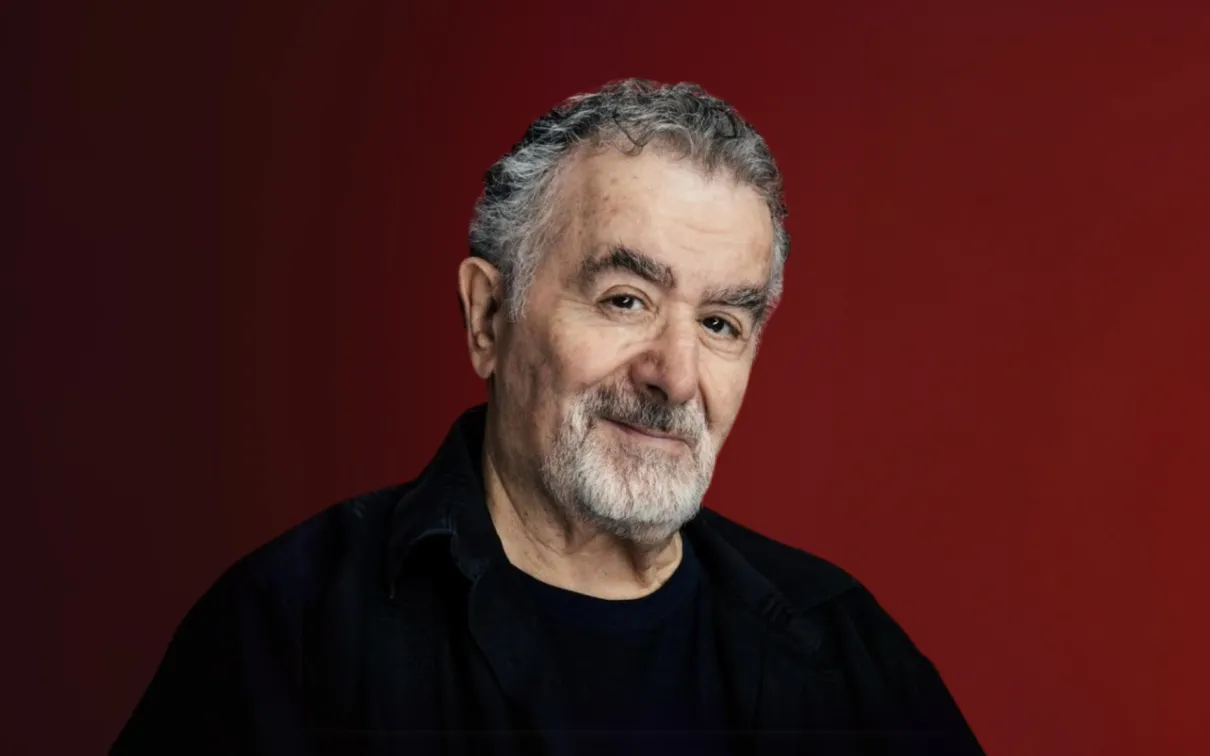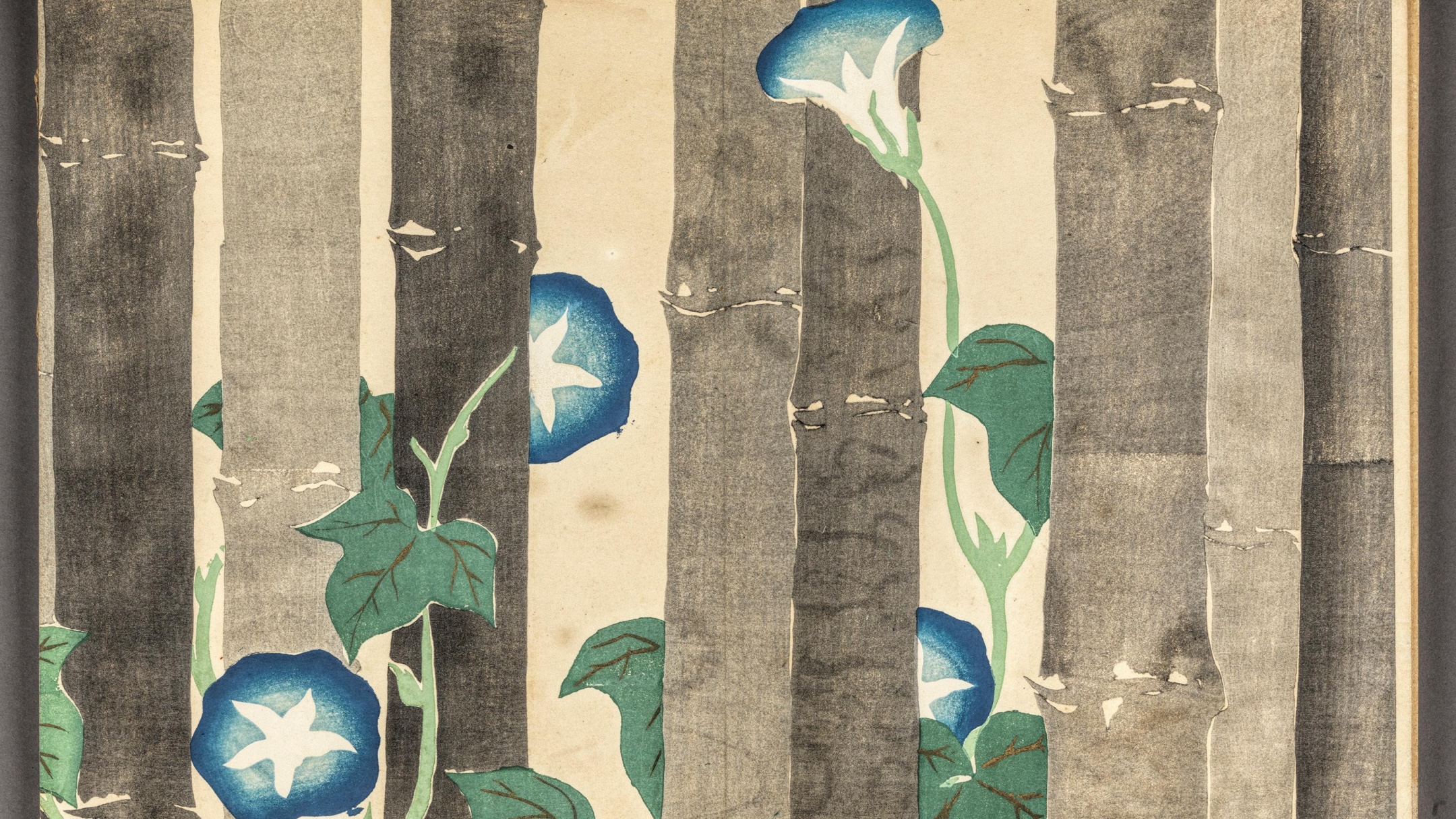Saul Rubinek Has No Illusions
Published
Category
Author

Hidden Title
Saul Rubinek, 76, knows he’s not a Hollywood leading man. He’s a character actor—that familiar face you can’t quite place. But, in one sense, all the people who stop him on the street are right—they do know him from somewhere.
According to IMDB, Rubinek has acted in 177 projects across film and television over his five decades in the business, including major series such as Curb Your Enthusiasm; Person of Interest; The Good Wife; Star Trek: The Next Generation; Hunters; Lost; Schitt's Creek; and Frasier. He has worked with the Coen Brothers, Oliver Stone, and Clint Eastwood.
More recently, Rubinek returned to his first love: theatre. In Playing Shylock, A Canadian Stage Production in association with Starvox Entertainment (Corey Ross, producer), Rubinek plays a fictionalized version of himself who is forced to stop the production of The Merchant of Venice because “his portrayal of Shylock—as a Jewish man himself—has angered members of the Jewish community, who’ve petitioned for the production to be shuttered.”
Part of the brilliance of the show’s conceit—which Rubinek developed with the play’s writer, Mark Leiren-Young, and director, Martin Kinch—is that it “draws a perimeter” around the real Saul, so that he is free to engage the audience about thorny issues like antisemitism and institutional self-censorship.
His latest one-man show, All in the Telling, is even more personal. Drawn entirely from moments in his own life and his family history, the play spans continents and generations, touching on everything from how his parents survived the Holocaust to his wholesome, somewhat harebrained scheme to reconnect with his father after they became estranged. It’s dark, funny, candid, optimistic, intense—just like the man himself.
On January 27 and 28, Rubinek will be performing excerpts of All in the Telling at ROM to mark International Holocaust Remembrance Day. In advance of the events, Rubinek spoke to me from his home in Los Angeles about his life and career, the theatre, and the role of hope in art.
Why would I be doing what I'm doing if I actually believed that my life was more interesting than yours? What a horrible artist I would be.
Hidden Title
Saul: I probably have more questions for you than you have for me.
Colin: I assure you my life is far less interesting.
Saul: I don't think so.
In All in the Telling, which is very much about my own family, everything is accurate. I'm not telling any lies, although the play is very much about lies, which is why it may be offensive for some people that I also call it a “Holocaust comedy.” Many of your readers are going, “What?” But there are sections that are humorous, and one of the reasons for that is that's the way my parents survived the Holocaust.
When people go through tragedy, as what's [currently] happening right here in Los Angeles, a certain amount of black humor is necessary to get through to the next hour—which is a very human thing to do and allows us to get perspective on what has happened that’s painful, difficult, and sometimes tragic.
In the case of All in the Telling, it’s a story about how I came to investigate my own parents’ experiences during the Holocaust, even though I had known about the fact that they were Holocaust survivors way before I was ready to understand anything about genocide. And it’s about how I took my parents back to Poland in 1986 to have a reunion with the Polish farmers that had hidden them for two and a half years during the Holocaust, [editor’s note: a trip which formed the basis of Rubinek’s documentary So Many Miracles].
Many years [after the trip to Poland], I ended up in front of my 13-year-old daughter’s class. After I showed the documentary, I asked the class: “How many of you think that my family story is more dramatic than your family stories?” And most of the class raised their hand. I’m going to quote what I say from the play:
“I believe that you will find in your own family history, there is great romance, betrayal, murder, lives saved at the last minute. Cowardice, courage, miraculous coincidence as dramatic as any of the greatest novels ever written. Victims, perpetrators, heroes, and bystanders, all in your own family history. Sometimes all of those things in one person; sometimes all of those things in one person on the same day. If you ask the right people the right questions, and if you have the will to share it, that’s the mitzvah—that's the blessing.”
[You said] “I’m sure my life is not as interesting as yours.” Of course it is, Colin. It's complicated. It's poignant. It's filled with pain and humor. Why would I be doing what I'm doing if I actually believed that my life was more interesting than yours? What a horrible artist I would be.
Colin: As much as All in the Telling is a deeply personal work, one of the throughlines is this deep yearning for connection via other people’s stories.
Saul: That's the nature of all art. You yourself, when you write any article, and if it's well written and you're talking about complex aspects of the human condition, what that does is make people feel like part of the human community. And they relate to those stories—either metaphorically or literally—and they can transpose those particular things you're talking about to their own conditions. Then that encourages people to share their own stories—which leads to conversation, which leads to community, which leads to very positive effects in our in our world.
So, as to your question about whether my own acting and writing is part of me encouraging others to contribute, of course! It's like saying, “Do you breathe when you work?”
Colin: That’s a fair point. But for some people, their artistic expression feels like an attempt to project themselves into the world. Whereas you seem to be encouraging others’ stories.
Saul: Well, that's very kind of you, but the truth is that all of us have egos. All of us have to make a living. Our motivations aren't pure, and anybody who says they are, I don't know if they're actually human beings or from the planet Xenon. All of our motivations are complicated. They have to do with all kinds of silly shit, and sometimes in the middle of that silly shit, you also get to do some really profound, wonderful things.
The truth is that all of us have egos. All of us have to make a living. Our motivations aren't pure, and anybody who says they are, I don't know if they're actually human beings or from the planet Xenon.
Hidden Title
Colin: As I was preparing for this interview, I was reminded of the playwright Tony Kushner, who wrote: “It is an ethical obligation to look for hope; it is an ethical obligation not to despair.” What role does the pursuit of hope play in your work?
Saul: I don't know if I agree with what Tony Kushner said. You’re asking me a question based on a premise that I haven't agreed to.
Colin: Tell me why you disagree with him.
Saul: I don't disagree with him. I'm a contrarian. I'm Jewish, and so is he. This is our culture. This is what I grew up with: intelligent and fun arguments, which sometimes bleed into not fun and unintelligent arguments. Because five Jews, 44 opinions. So, what happens is that, when I hear a sentence like that, I think of all the hopeless art that I saw that really helped me in my life.
Colin: I want to push back for a second. If you're so depressed, if you're so despairing, part of me thinks you're unable to create. And that the very production of art is—even if that art is inherently dark—an act of hope.
Saul: Tony Kushner isn't talking about the act of sharing a play. He’s talking about the content of the play. What you just said negated what he said. The act of sharing anything is an act of hope. Period.
But you’re asking me if my work coincides with Tony Kushner’s statement, which is a really good question. The answer is yes—with the caveat that it’s not that simple. I'm not trying to advocate hope in All in the Telling. It just happens that my parents stayed in love. It happens that my parents survived together. It happens that they shared their experiences with me.
My father was in Yiddish theatre, and he hid it from his father. And when my Zeyde—my grandfather—found out about it, he waited for my father to come home one night. My 16-year-old father was late because he was doing a show. And when my father came home, my Zeyde said, “How could you go so far away from God? How can you betray your family, your people, like this?”
My father was speechless. And then he said, “I'm doing a Yiddish play by a great Yiddish writer. It’s about a Jewish family. It's about the troubles between the husband and the wife. It's about their hopes for the children and I'm playing one of the children. Father, theatre—if it’s good—the audience sees themselves on the stage. They laugh. They cry. And for a few minutes each night, they don't feel so alone.” And my Zeyde said, “Maybe it's not so far from God after all.”
That's why I wrote the play.
This interview has been edited for length and clarity.
Click here to join Saul Rubinek at ROM on January 28, 2025.


